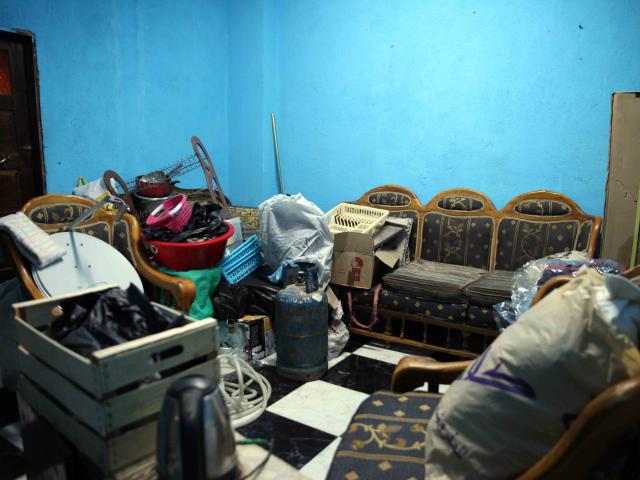
The Report recommends joint compensation committee with representatives from the government and the displaced to determine compensation commensurate with value of property
Press Release
The Egyptian Initiative for Personal Rights released today a report titled “From Displacement to Isolation: One Year after the Forcible Displacement of Arish Copts.” The report documents the living conditions of the displaced Copts one year later, examining what was provided by the state and whether effective steps were taken to ensure justice and restitution for the affected citizens. To coincide with the report, the EIPR is also releasing film footage of several testimonies of the victims, given from the current places of residence in the governorates of Ismailiya, Cairo, and Giza.
The EIPR report is divided into two parts. The first discusses the conditions of the very few Christians who remain in Arish and the attacks that have occurred since the mass displacement through the end of February 2018, as well as the conditions of Copts displaced in other regions. Part two analyses the interventions of government bodies aimed at ensuring justice and identifying the perpetrators of the attacks, providing restitution in the form of compensation commensurate with the harm sustained by the victims, and, prior to this, adhering to standards of disclosure by recognizing the magnitude of the problem and taking the necessary actions to mitigate this harm.
EIPR made several findings in the course of preparing the report:
A year after the displacement, the security situation remains unstable and Christians are not afforded a minimum level of protection. The displaced families are therefore unable to return to Arish, and in some cases people who decided to return were targeted and killed by masked men.
Since state officials have failed to accurately describe the crisis, no clear legal framework exists to regulate the treatment of victims and subsequent actions of security and executive officials. The systematic displacement Copts has been treated as one-off event that will pass in a matter days when the displaced return to their homes, which has not yet happened.
Actions by executive officials and administrative leadership during the displacement were influenced by the media uproar surrounding the families’ displacement. The government therefore supported a substantial segment of displaced families with housing and living assistance, but it failed to devise an integrated plan for dealing with the crisis. The displaced people were treated like charity recipients rather than citizens deserving appropriate compensation for their property, integration into new communities, and jobs to guarantee a dignified life.
The lack of an integrated plan also meant that victims received different treatment depending on the governorate to which they moved. Some governors issued decrees offering monthly stipends to cover the cost of rent, others provided apartments to be used as temporary residences, and others ignored the victims entirely.
Although a year has passed since the spate of religiously motivated killings and displacement, the investigating authorities have released no information about the state of investigations. Have the parties inciting to and committing these crimes, whether groups or individuals, been identified? Have the investigating bodies surveyed the scene of the targeted attacks? Were parties arrested in connection with these attacks? The lack of answers to these questions raises doubts about the ability of institutions of justice to do their duty to investigate, summon and question suspects and defendants, and refer them to trial in the competent court.
The report recommends:
1. Forming a joint compensation committee of representatives of the government and displaced families, tasked with maintaining contact with the displaced and determining compensation commensurate with the value of the property of those who wish to dispose of it and not return to Arish. The committee should also grant assistance to ensure a dignified life to those who wish to keep their property while removing obstacles to access of government services and providing jobs to the displaced near their places of residence.
2. Acting with transparency: the investigating bodies should release their findings, identify the persons responsible for these attacks, and bring them to justice.
In May 2017, the EIPR issued a report, “A Death Foretold: An Analytical Report on the Killing and Displacement of Arish Copts.” That report examined incidents in which Copts in North Sinai were collectively targeted with various forms of intimidation, from the prohibition of worship, the burning of churches, attacks on property, and abductions for ransom to forced displacement and identity-based killings.



